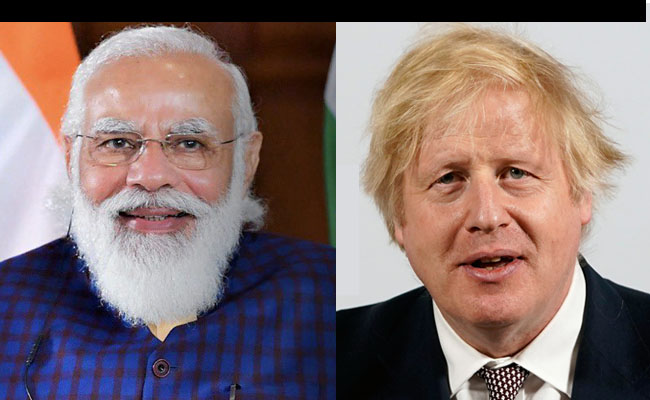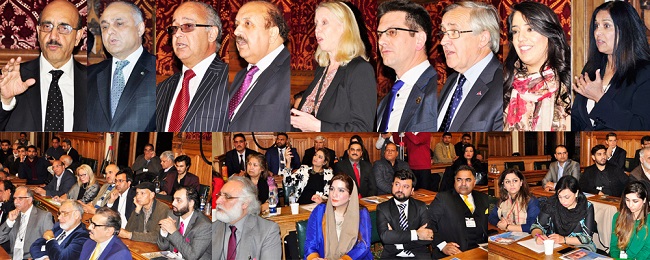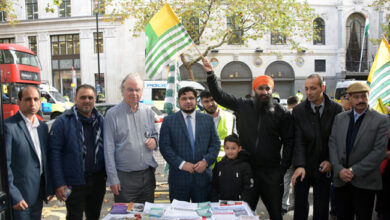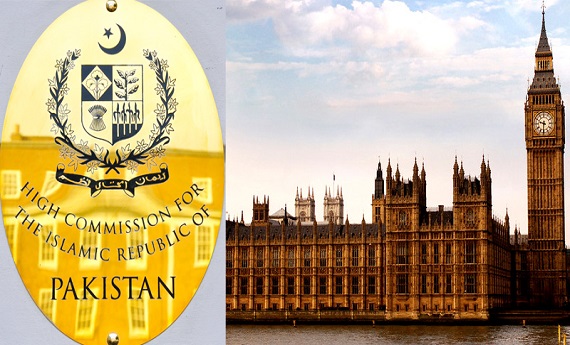Sikhs advise UK PM to challenge, not appease, the Modi regime

JOHNSON MAKING MAJOR POLITICAL BLUNDER AMID ARRESTS OF UK SIKHS
London: The hugely questionable and dangerous developments this week, involving the controversial arrest of three UK based Sikhs following an Indian extradition request cast, once again, a dark shadow over the UK government’s dealings with the Sikhs. This came just days after the UK Foreign Secretary, desperately seeking a UK -India trade deal to help deal with the Brexit fall out, met with his Indian counterpart, settling plans for PM Johnson to be PM Modi’s chief guest in New Delhi on 26th January during India’s Republic Day ceremonials. It can surely only be interpreted as a cynical attempt to curry favour with India’s Hindutva establishment in the hope of securing those trade benefits. The risk of causing long term damage to relations with an estimated 700,000 strong diaspora Sikh community in the UK is obvious. The disregard of that outcome, not to mention the injustice to – and potentially inhuman treatment of those three Sikhs if handed over to India – is alarming.
Unfortunately, we have been here before; and it didn’t end well last time. In 1984 Margaret Thatcher, desperate to secure military sales to India, foolishly provided military assistance to Indira Gandhi in planning to attack the Sikh nation’s holiest shrines in Amritsar. That blunder not only seriously damaged Westminster’s relations with the huge Sikh diaspora in the UK, but has arguably undermined and defined that relationship ever since. Whilst trying to cover up that shameful episode, especially since the accidental release of key documents in 2014, the UK government has never corrected its position vis a vis the Sikhs. Cleared by a formal approval from the right-wing UK Home Secretary Priti Patel, no stranger to controversy and concerns over integrity in government, the foolish dawn raids carried out in Coventry and Wolverhampton on 21 December 2020, suggest the lessons of history are not being learned.
We would advise Boris Johnson to heed the words of his illustrious predecessor Winston Churchill who said “those that fail to learn from history are doomed to repeat it”. Perhaps more importantly, he should reflect on Churchill’s post-war analysis of Anglo-Sikh relations: “British people are highly indebted and obliged to Sikhs for a long time. I know that within this century we needed their help twice and they did help us very well. As a result of their timely help, we are today able to live with honour, dignity, and independence.”
Boris Johnson and his cabinet colleagues should be in no doubt that Sikhs in the UK and beyond have seen through the expediency of the UK government’s moves. Cosying up to a right wing, if not fascist, regime in India is simply wrong. Doing it in a way that abuses the legal system and jeopardises the lives of the three Sikhs – all of whom are UK nationals – is unacceptable. The extradition proceedings that will now follow will be robustly challenged by those individuals and they will be supported by the entire UK Sikh community. The case relates to the killing of a Hindutva supporter in Punjab in 2009; the three Sikhs now sought by the Indians were previously investigated by the UK police some ten years ago, with no charges being brought in the absence of any incriminating evidence. The current extradition action is just an opportunistic misuse of a supposedly apolitical treaty arrangement, for purely political purposes, that we believe will not survive examination by the UK courts.
The entire world has recognised that India’s record on human rights is appalling and is getting worse, as minorities are increasingly targeted by Modi’s policies, courts, media networks and goons alike. This is a moment for those in UK politics, who cherish the rule of law, to push back against the hate and menace of a majoritarian regime, not to appease it by betraying a nation that Britain remains indebted to. At a time when the Sikhs of Punjab are spearheading the challenge to that regime’s economic genocide, masquerading as agricultural law reforms, it would be wise for Boris Johnson to rein in his Home Secretary, drop these unscrupulous proceedings and pull out of his planned visit to Modi’s parade next month. Modi has been rattled by the massive farmer gatherings peacefully besieging his capital. Appeasing a notorious human rights violator, now on the back foot even in his own backyard, is not in the UK’s foreign or domestic policy interests.
UK Chapter of the World Sikh Parliament





